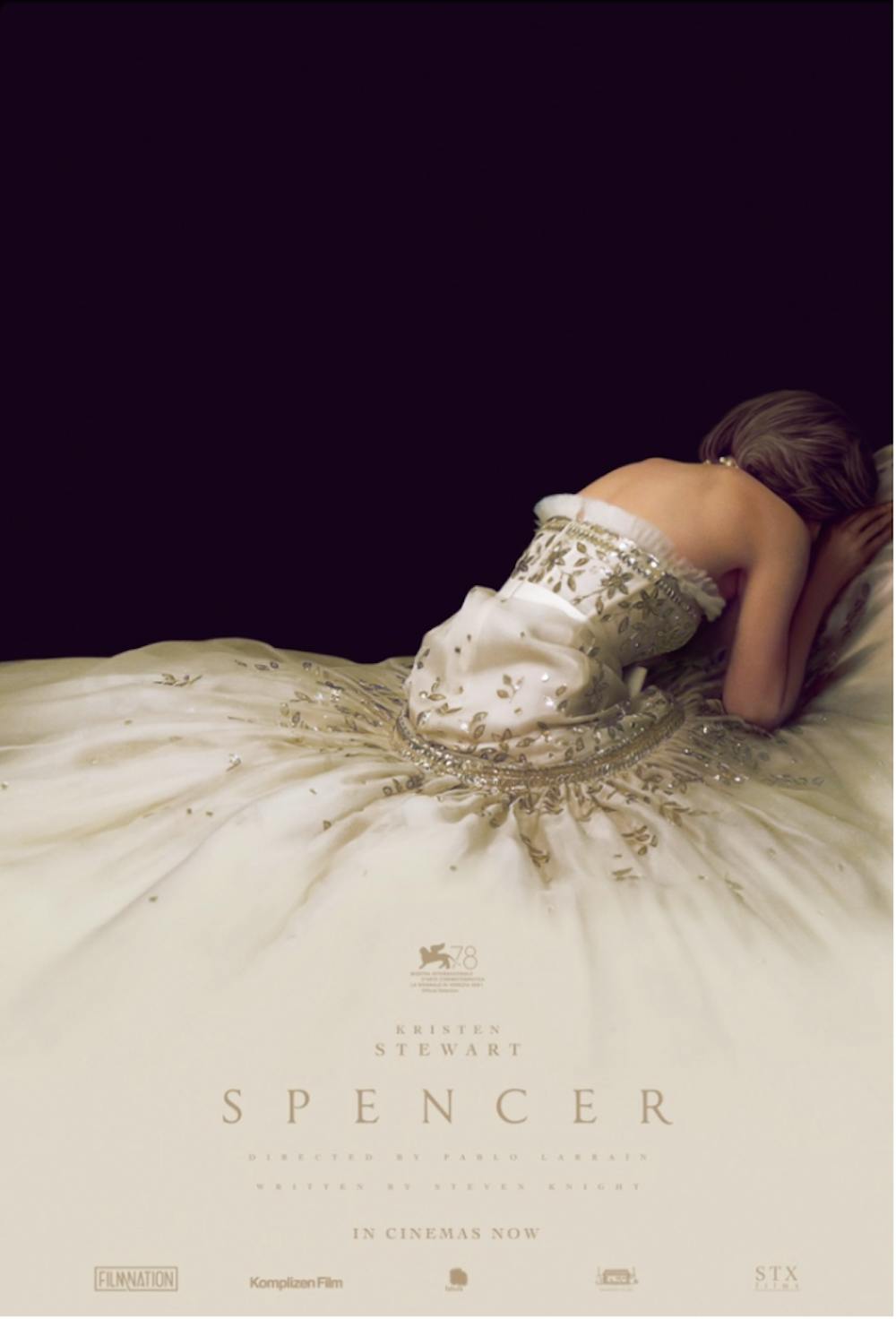By Andrew Caselnova
Correspondent
After receiving a five-minute standing ovation and overwhelming support at the Venice Film Festival this past September, Pablo Larraín’s “Spencer” premiered on Nov. 5 with high critical acclaim and audience anticipation. For those wanting a more truthful telling of the events surrounding Princess Diana’s eventual departure from royal life, “Spencer” might not live up to the anticipation. “Spencer,” as the opening shot says, is “a fable from a true tragedy,” opting for a more artistic telling of Princess Diana’s Christmas weekend at Sandringham.
With the nature of the depiction of events established by the film’s opening statement, the film starts with reluctant Diana (played by Kristen Stewart) arriving at Sandringham for Christmas weekend sometime in the early 1990s. The film relies heavily on showing the viewer, often through absurd and at times frightening scenes, the extent to which Diana may have been suffering in her marriage. During the more artistic moments of the film, Diana is shown eating her pearl necklace gifted to her by Charles and hallucinating visions of Anne Boleyn, once a Queen of England, who was brutally killed by her husband Henry VIII. These moments particularly stand out in the film as Larraín shows how exhausted Diana was putting up with her husband Charles’ infidelity, as well as the royal traditions that were shown to be very suffocating for her.
In the pearl-eating scene, Larraín shows Diana forcing herself to swallow Charles’ infidelity as Charles’ mistress, Camilla, also was gifted the same pearls. Her visions of Anne Boleyn grow stronger as the film progresses with Larraín perhaps trying to say that Diana suffered the same fate as Anne Boleyn with her eventual divorce from Charles in 1996 and untimely death in 1997.
Among the artistic standout moments, there are some very raw and real moments that drive the movie forward. Throughout the film, Diana is shown struggling with bulimia, often excusing herself to the bathroom to throw up the meal she had just eaten. Notably absent in these scenes are Charles and the rest of the royal family creating a sense that Diana was alone in dealing with a lot of these issues surrounding her mental health and eating disorder. The only moment in the film where someone besides Diana mentions her struggles with bulimia is when Charles coldly advises her to stop throwing up the meals that the chef is making for her.
A few more standout moments involve the scenes where Diana is shown with her children William and Harry. One scene in particular where Diana and her children pretend to be soldiers and playfully question each other about their Christmas weekend shines as a moment where Diana is what she wants to be most: a mother.
While the movie has some great standout moments that build off of each other, there are a few scenes and parts that detract from the film’s overall message and meaning. One of these parts is the relationship between Diana and her royal dresser, Maggie. During the course of the film, Maggie and Diana are shown to be great friends, and Diana often vents and tells Maggie her deep feelings about Charles and the royal family. Toward the end of the film, Maggie exposes her romantic feelings for Diana in an intimate shot where the two are alone at the beach together.
Why Larraín decided to include this storyline in the film is something that is a bit confusing, as there seemed to be no real point in Maggie (who is not based on a real person) confessing her romantic feelings, as nothing is done with the revelation. While Maggie was important in the film, as it provided a place to get more information about Diana’s feelings, adding the unnecessary romantic twist at the end turned the storyline sour and made it, at times, disrespectful.
The film does an impressive job at not just telling the story but showing the story of Diana’s royal life and her failing marriage to Prince Charles. For those expecting “Spencer” to be a docudrama similar to “The Crown” or Hirschbiegel’s “Diana,” disappointment might be the most overwhelming part of “Spencer.” But, for those willing to dig a little deeper, “Spencer” offers an illuminating and fulfilling look into Princess Diana’s most vulnerable moments and struggles.
3.5 out of 5 stars.







